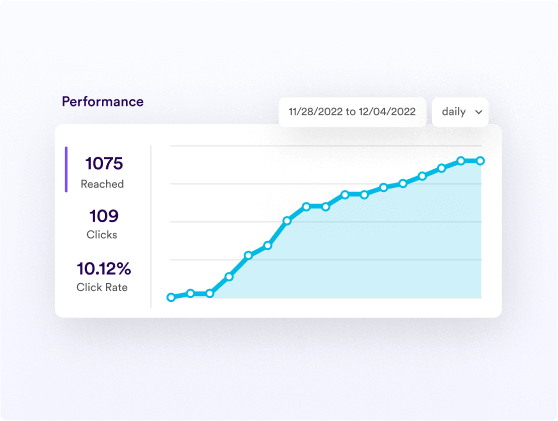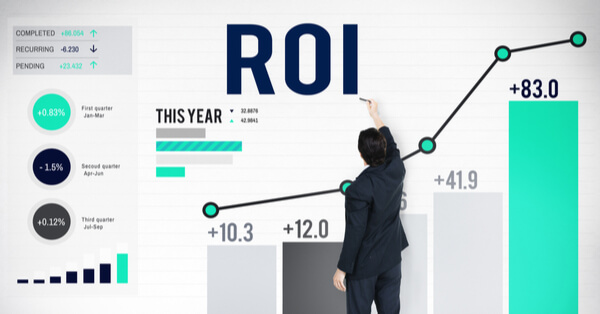7 Reasons modern retailers should invest in a CDP
March 19, 2023

Effective customer data analysis is almost impossible without a CDP (customer data platform) in place. These digital tools give your retail store a 360-degree of customer profiles, allowing you to tailor marketing campaigns and product catalogs. If you’re thinking about implementing a CDP into your work processes, here are seven reasons why its a perfect fit for retail businesses and their unique needs.
1. Create a 360-degree view of the customer
If you’re wondering, “What is a CDP for retail?” In a nutshell, it’s packaged software designed for retailers that organizes and cleans customer data so it’s easier to understand. The primary reason why retailers should invest in a CDP is that it gives you a single, full-circle view of the customer, which includes shopping behaviors, buying history, brand touchpoints, and retention statistics. For example, the marketing team will gain a better understanding of customer needs and can tweak campaigns to appeal to these needs.To learn more, read about the top seven CDP use cases for retail marketing.
2. Act on real-time customer trends
CDPs allow you to spot changes in customer behaviors in real time so marketers can adjust campaigns accordingly.

A well-known example of this is the fidget spinner. When it became popular in 2017, companies that gathered consumer data could have predicted this well before anyone even knew what a fidget spinner was.But if a company waited until the popularity became mainstream, it would’ve missed out on most of the sales.
Similarly, instead of relying on third-party data, be sure to collect your own customer data and organize it under one digital roof.
3. Increase the chances of campaign success
By relying on analytic decision-making, you’re increasing your chances of marketing success.

When you organize customer data in a CDP, you can create profiles using real-life data, so all your marketing decisions are based in reality. But will CDP replace CRM (customer relationship management) software? In short, no. CRMs are geared toward sales and require sales reps to reach out to customers and take notes. On the other hand, CDPs gather data from your entire organization and store it so it’s easy to understand.
4. Comply with government regulations
Government data privacy regulations like the GDPR (General Data Protection Regulation) and CCPA (California Consumer Privacy Act ) are confusing. Fortunately, storing and organizing your data in a CDP guarantees compliance.
If customers ask you to delete their data, you can effortlessly search for their profile, delete it, and send proof of deletion. And if you’re collecting data from minors, you’ll be able to meet government regulations by protecting it with military-grade encryption and storing the approval of a guardian.
5. Build customer relationships through personalization
With the dramatic rise of online shopping during the COVID-19 pandemic, customers are expecting more personalized experiences. By implementing a CDP, you learn about a customer’s habits, preferences, and behaviors, promoting personalization. For example, if you find a customer searching for gifts to buy their significant other during the holidays, you could redirect them to your gift guide. From there, provide them with fantastic gift ideas—you could even link to your ecommerce page.
6. Increase the value of your business
If you’re seeking investment from angel investors or venture capitalists, implementing a CDP is a must because it instantly boosts the value of your businesses. Investors prefer companies that use customer data strategically instead of building inaccurate business strategies.

As a retailer who adopts CDPs, you’ll increase your return on ad spend, deliver more customized experiences, and lengthen the customer’s lifetime value. These are factors that investors look at before investing in a retailer and critical to long-term financing.
7. Remove organizational data silos
CDPs are a must if you’re a retailer with multiple departments working separately from each other. Without CDPs, your departments don’t have access to all company information, so if they need a document to complete a task, they’ll have to contact other departments. This back and forth can cause confusion and lead to a drop in productivity.
But when you store all company data under one roof, everyone can access it. If employees are looking for a specific file, they can search for it in your CDP.
Customer data analysis is easy with Lytics
In today’s data-driven age, a customer data platform is a necessary part of business success since it allows your organization to store and understand data, which gives you a 360-degree view of customer preferences. A CDP makes organizing and understanding data easy, so you can focus on scaling your business with the meaningful insights you glean from it.



